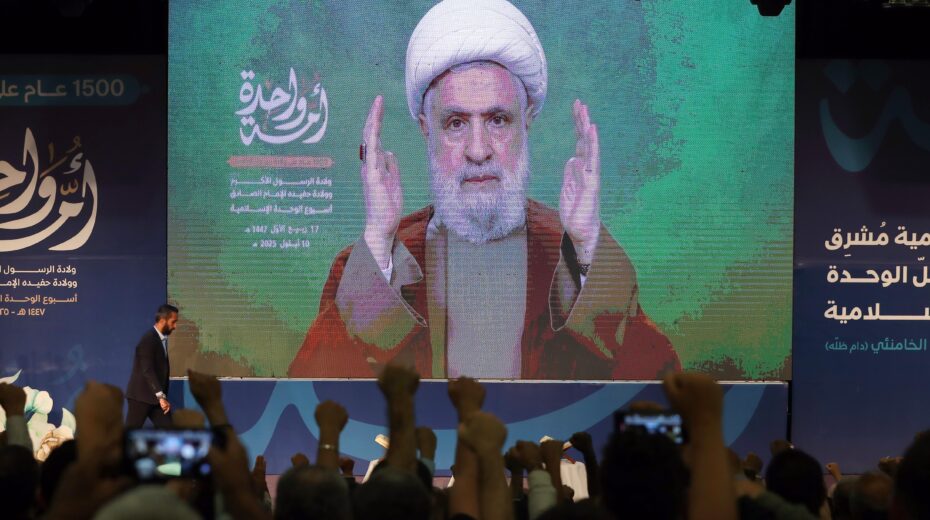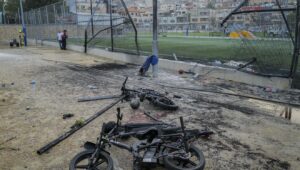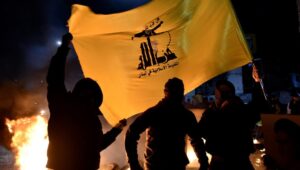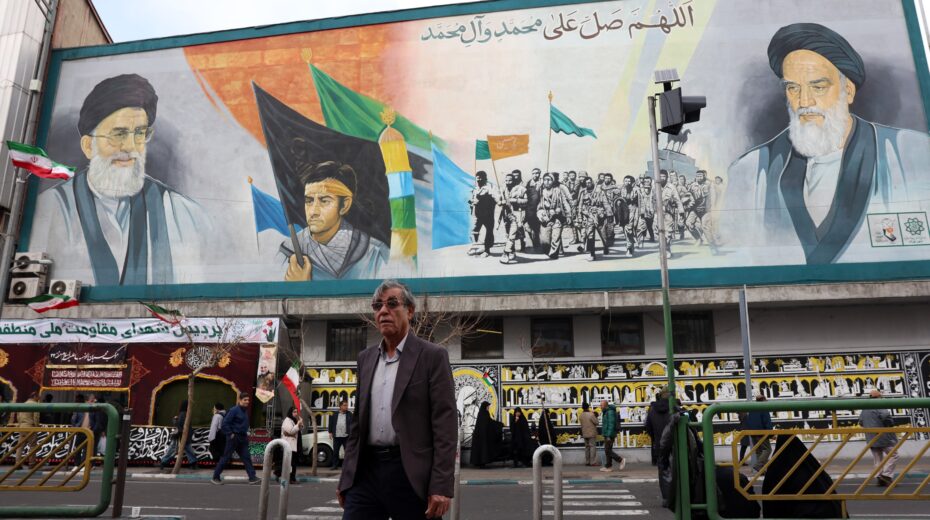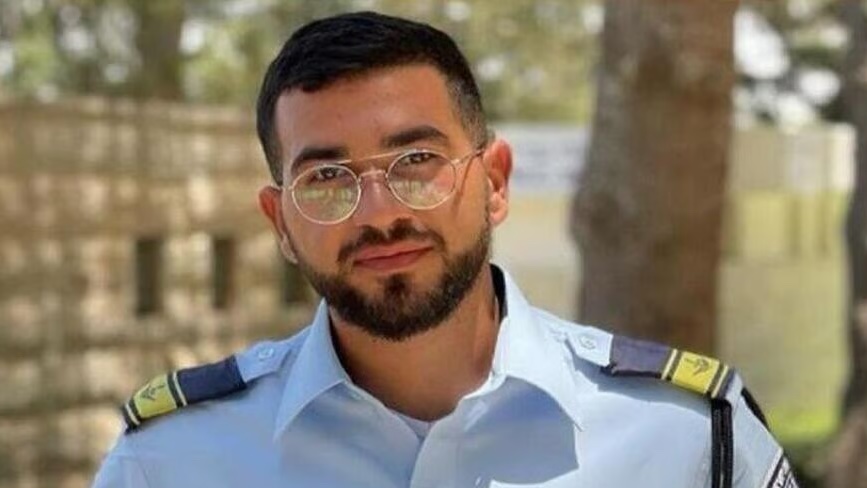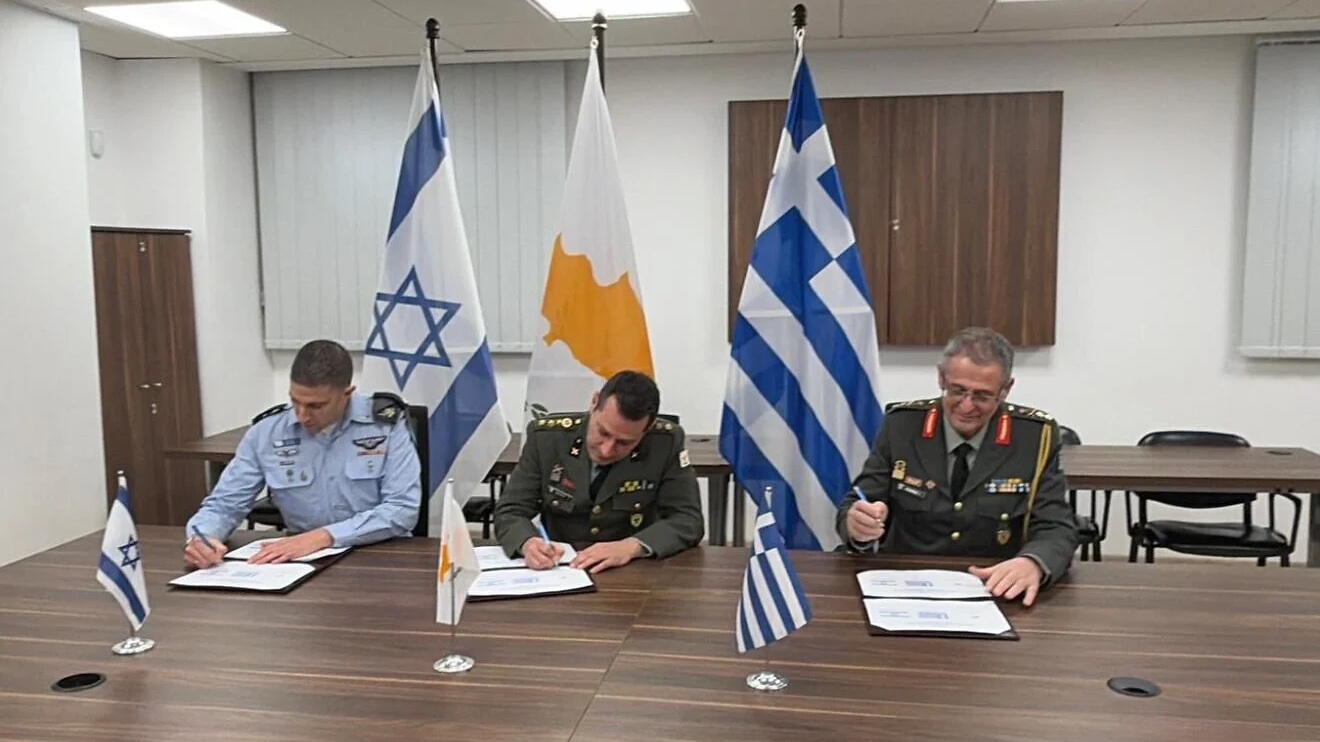(JNS) Since Nov. 27, 2024, Israel and Hezbollah have officially been in a state of ceasefire, but not a day goes by without the Iranian-sponsored terror faction seeking to violate the arrangement by trying to rebuild its battered capabilities, triggering Israeli airstrikes.
Simultaneously, Hezbollah is pursuing a political strategy to take over the Lebanese parliament, and the Lebanese state is largely helpless in stopping its activities, leaving Israel to do the heavy lifting, according to former senior Israeli security officials.
Col. (ret.) Jacques Neriah, an analyst at the Jerusalem Center for Security and Foreign Affairs and a former deputy head for assessment of Israeli Military Intelligence, told JNS that Hezbollah is receiving digital cash flowing from the Shi’ite diaspora and “Qassem’s money”—a reference to Hezbollah Secretary-General Naim Qassem, who replaced Hassan Nasrallah—coming in from Iraq. According to some estimates, the total of these funds amounts to nearly 500 million dollars.
“I think that right now Hezbollah is busy organizing its forces, although it has more or less completed filling the missing ranks, appointing commanders who were killed, training [elite] Radwan forces anew, operating factories for assembling precision missiles and assembling UAVs, deploying observation posts in southern Lebanon, bringing in weapons from Syria and other places into Lebanon, through the illegal crossings of which there are close to 377, and of course the flow of digital funds,” Neriah said.
Despite its losses in the war—according to Israeli assessments, it lost more than 80 percent of its pre-war arsenal by November 2024—Hezbollah still possesses a considerable arsenal, Neriah assessed. “In today’s data, they also say it has something like 30,000 projectiles left, which is not a small amount. Some of these are long-range projectiles and most are short-range rockets,” he said.
He warned that this military buildup is paired with a sophisticated political strategy to seize control of the Lebanese state. “The next mission is to take over the parliament. How? During the time of Michel Aoun, the previous [Lebanese] president, they passed a law that the Lebanese diaspora abroad will not vote for the 128 parliament members that exist on the various lists, but they will vote for six separate additional seats,” Neriah said.
“Why is that? Because most of the Lebanese who are abroad and vote are anti-Hezbollah. Meaning, if you let them vote for parliament, they [Hezbollah] will never be able to take over the parliament, and this is the next goal.”
He described Lebanon as a “failing state” and its military as a “failing army” that has no real power to implement reforms or confront Hezbollah. “It is a sectarian army, 60% of which is Shi’ite; these are all people who have family in south Lebanon, no one will raise a rifle or a finger against Shi’ite villages in southern Lebanon, so what kind of army is this?” Neriah stated.
Given this reality, he argued that the US has resorted to using Israel as its proxy, he added, to pressure Beirut to take action against Hezbollah’s weapons. Ultimately, Neriah said, a large-scale Israeli air operation will be needed to further weaken Hezbollah and to enable the Lebanese government to break free of its grip. He noted that during Operation Northern Arrows by the Israeli Air Force on Sept. 23, 1,600 sorties flown by the IAF over several days were extremely effective against Hezbollah’s capabilities.
Maj. Gen. (res.) Uzi Dayan, who served as deputy chief of staff and head of the National Security Council, told JNS, “Hezbollah will do its utmost to return and recover, this is true militarily, from a terror perspective, and it is also true politically. The Lebanese government wants to weaken Hezbollah as much as possible, but the main problem for it is that it is, as usual, weak. Hezbollah will direct its build-up towards the south of Lebanon, both because it has a wide Shi’ite base there, and also because it’s far from Beirut.”
Dayan outlined a multi-stage strategy for Israel in dealing with this threat. “One, always prepare operationally according to the enemy’s capabilities and not according to his intentions, because in assessing his intentions, history is full of mistakes in trying to understand, guess the intentions, or rather predict the enemy’s intentions. It is better to prepare according to its capabilities.”
A second, non-negotiable component is maintaining a permanent buffer area, said Dayan.
“The international border in Lebanon today is in some places tens of meters from [northern Israeli] communities. This is true for Metula, it is true for Misgav Am, it is true for Shlomi, also for other places, and therefore, defense must be in a security zone. The ideal is what the Americans call a ‘death zone,’ as they did between South Korea and North Korea,” he said.
Dayan argued that any significant violation by Hezbollah should be used by Israel to expand its current narrow security zone in southern Lebanon.
Third, Dayan argued that Israel must shed its reluctance to strike first. Thwarting Hezbollah’s attempt to recover, he said, must also allow, under certain conditions agreed upon in Israel, include a pre-emptive counter-attack. “That is, there are places where you have no choice but to hit him before it hits you, and this is something Israel has refrained from doing for many years.”
Dayan dismissed the Lebanese Army as a credible force, noting that it is infiltrated by Hezbollah loyalists and that its basic functionality is “nonexistent.”
In many areas, he said, “Lebanon is state that has no street names, no house numbers, nothing state-like, no state education system, no social security, and what is more troubling on the practical side, is that the salary, for example, of a soldier in the Lebanese army is about one-eighth of the salary of a terrorist in Hezbollah.”
He also characterized the US role as one of economic, not military, pressure. “The Americans are doing a kind of peace. Their peace is economic, and utilitarian,” he said. “When it comes to threatening military force in the region, the US will always rely on Israel.”
Therefore, he added, “this is a situation that will happen quite a lot, because we also do not intend to conquer Lebanon.”
Ultimately, Dayan concluded, “We are saying, there will be no peace that does not pass through the liquidation of terror. If this is true in Gaza, it is true in Lebanon, and it is true in Syria.”
Want more news from Israel?
Click Here to sign up for our FREE daily email updates


